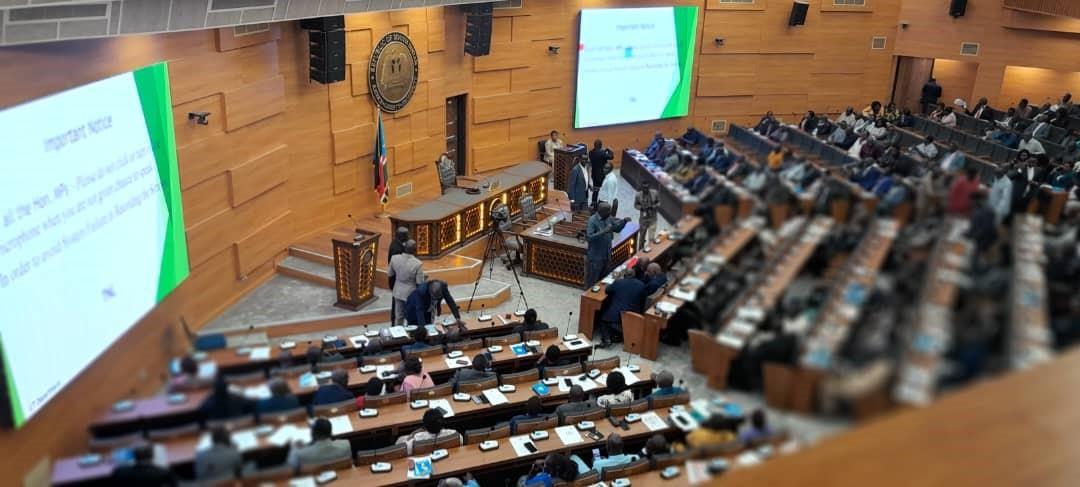Africa-Press – South-Sudan. The National Legislative Assembly has proposed a drastic reduction in the government’s borrowing capacity as it passed the amended Financial Management and Accountability Act to the third reading on Monday.
The bill was presented by the Chairperson of Specialized Committee for Finance and Economic Planning, Hon. Changkuoth Bichiok Reth.
The act adopted in 2011 and amended in 2024 consists of nine chapters and forty-five sections including the promotion of prudent, transparent and accountable management of national wealth and resources.
It covers the general budget preparation process, requisition and expenditure, borrowing and lending, accountability, and examination of accounts, and procedures governing transfers to the state governments.
Once it is passed and approved by the President, the Bill will guide the Ministry of Finance on the budget time frame, preparations and obtaining loans.
The bill will also mandate the Minister to present a budget policy statement and debt management strategy paper to the parliament.
After thorough deliberations, the lawmakers passed the bill with all amendments, changes and observations to the third reading.
“In its ordinary sitting number five of the first session Chaired by the Right Honorable Speaker Jemma Kumba, the Parliament passed the accountability act to the third stage,” said parliament spokesperson, Oliver Mori Benjamin, after the sitting.
“This is one of the most important amendments in this bill for accountability as required by the agreement.”
Lawmakers recommended a borrowing limit – reducing the government’s gross debt to 20 percent instead of 50 percent as suggested in the National Constitution Amendment Committee document.
“On section 43 of Borrowing limits, the committee recommend 20% percent of the gross debt for the government and not 50% as suggested in the NCAC document,” said Hon. Changkuoth Bichiock, the Chairperson of the Committee on Finance and Planning.
This means the committee is suggesting that only 20% of the initial principle borrowing should be allowed.
Changkuoth also said: “The committee recommends 10% percent but not 20% for the ratio of total annual debt service including both interest and principal repayments to domestic Revenue and government.”
The parliament also recommended in the amended act that any lender of a credit facility should seek approval from the legislature before securing loans or disbursing funds to the government.
It further recommends that the minister of finance and planning is to record documents and publish quarterly to ensure public scrutiny and accountability of payment made to oil producing states and administrative areas.
For More News And Analysis About South-Sudan Follow Africa-Press






